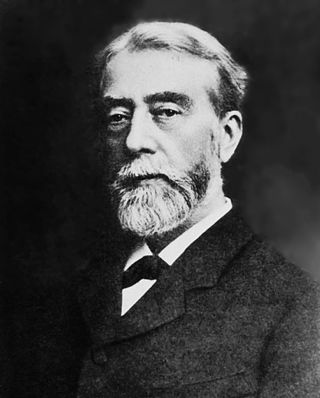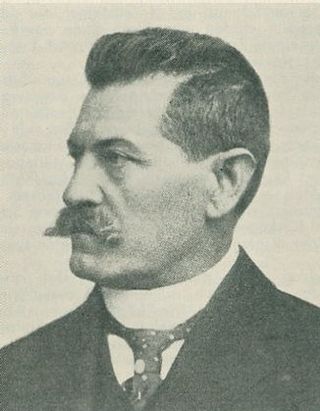
Friedrich Wilhelm Ernst Albrecht von Gräfe, often Anglicized to Graefe, was a Prussian pioneer of German ophthalmology. Graefe was born in Finkenheerd, Brandenburg, the son of Karl Ferdinand von Graefe (1787–1840). He was the father of the far right politician Albrecht von Graefe (1868–1933).

Johann Friedrich Horner was an ophthalmologist based at the University of Zurich, Switzerland.

Julius Binder was a German philosopher of law. He is principally known as an opponent of legal positivism, and for having remained as an active scholar during the 1930s in Nazi Germany who did not speak out against the prevailing government of that time.

Theodor Karl Gustav von Leber was a German ophthalmologist from Karlsruhe.

Carl Ferdinand Ritter von Arlt was an Austrian ophthalmologist born in Ober-Graupen, a village near Teplitz (Teplice) in Bohemia.
Carl Friedrich Richard Förster was a German ophthalmologist born in the town of Lissa.

Ludwig Laqueur was a German ophthalmologist born in Festenberg, Silesia. He was the father of historian Richard Laqueur (1881–1959).

Edwin Theodor Saemisch was a German ophthalmologist born in Luckau.
Alfred Carl Graefe was a German ophthalmologist born in Martinskirchen.

Hermann Pagenstecher was a German ophthalmologist born in Langenschwalbach.

Jacob Hermann Knapp, also known as Hermann Knapp, was a German-American ophthalmologist and otolaryngologist.
Otto Schirmer was a German ophthalmologist from Greifswald.

Rudolf Schirmer was a German ophthalmologist from Greifswald.

Karl Ernst Theodor Schweigger was a German ophthalmologist who was a native of Halle an der Saale. He was the son of scientist Johann Salomo Christoph Schweigger (1779–1857), inventor of an early galvanometer.

Julius von Michel was a German ophthalmologist born in Frankenthal.

Hermann Kuhnt was a German ophthalmologist born in Senftenberg, Brandenburg.
August Emil Ludwig Wagenmann was a German ophthalmologist.
Emil Paul Ernst Olaf Friedrich Krückmann was a German ophthalmologist.
Heinrich Schiess-Gemuseus, name sometimes given as Heinrich Schiess was a Swiss ophthalmologist.














